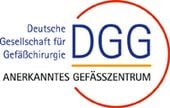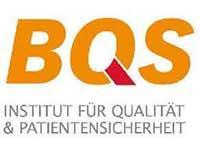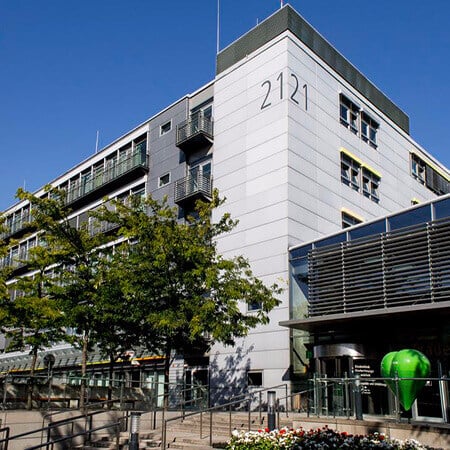A renal artery aneurysm is a rare disease, which usually does not cause any symptoms. This is a local dilation of a blood vessel. When an aneurysm reaches a large size, this can cause the development of complications: a rupture or a dissection, as well as a thromboembolism (the entry of blood clots accumulated in the aneurysmal sac into the arteries of the internal organs). Doctors in Germany treat renal artery aneurysms not only with open surgery, but also with minimally invasive endovascular procedures, which provide comparable results with a lower risk of complications.
Content
- Who may need treatment?
- Treatment options
The disease can be treated with open surgery or endovascular procedures. In the clinics in Germany, the effectiveness of minimally invasive treatment of renal artery aneurysms reaches 100%.
You can undergo your treatment in one of the following hospitals: Charite University Hospital Berlin, University Hospital Frankfurt am Main, or University Hospital of Ludwig Maximilian University of Munich.
If you contact the Booking Health company, you will not have to solve the organizational issues yourself. The company's specialists will fully organize your trip: they will select a doctor and a clinic, make an appointment for your treatment without a long wait, help you apply for a visa and get to the clinic, translate the results of the previous diagnostic examinations into German, provide interpreting services, and will constantly keep in touch to answer any questions that may arise.
Who may need treatment?
Most patients require only medical supervision, but the following conditions are considered indications for treatment:
- the size of the aneurysm is more than 2 cm;
- an enlargement of the aneurysm by 5 mm within 12 months;
- aneurysms larger than 1 cm in women planning a pregnancy;
- the presence of symptoms, such as pain or blood in the urine;
- arterial hypertension refractory to drug treatment;
- the aneurysm is combined with a functionally significant stenosis (an impaired patency) of the renal artery;
- thromboembolic complications;
- aneurysm rupture or dissection.
In women who may become pregnant in the future, it is desirable to cure even a small aneurysm, since after the onset of a pregnancy, blood flow in the blood vessels increases, the volume of circulating blood increases, and the arterial wall becomes weaker due to hormonal changes. This leads to an increased risk of bleeding or dissection.
Treatment options
The treatment of renal artery aneurysm in Germany involves the use of the following methods:
- an open "repair" (surgical treatment);
- endovascular interventions (angioplasty with stenting).
Surgical treatment
There are a large number of operations that are performed for a renal artery aneurysm. The treatment choice depends on the structural features of the aneurysm, its size and location, as well as the surgeon's preferences. The following surgical interventions can be used:
- an aneurysm resection with a plastic repair (restoration) of the blood vessel;
- a patch angioplasty;
- various bypass surgery options (creating a blood flow bypass around the aneurysm) – aortorenal, splenic, or renal;
- plication (suturing) of small aneurysms.
To repair vascular defects or form shunts, the specialists use the patient's own veins. Sometimes artificial or donor materials can be used as well.
Surgery provides reliable and long-term results, which is especially important given that the majority of patients with renal artery aneurysms are young people. It is important to perform the intervention technically correctly, so that the diameter of the restored blood vessels is sufficient for adequate blood flow.
Sometimes doctors resort to a nephrectomy. This is an operation to remove the kidneys. Surgeons in Germany rarely perform it, only usually in a treatment for an aneurysm complicated by bleeding. Low blood pressure and compression of the kidney by a hematoma, lead to irreversible damage to the renal parenchyma. German clinics often use robot-assisted systems to remove the kidney, which allows the operation to be performed with a lower risk of complications and a shorter duration of rehabilitation for the patient. Whenever required, a kidney transplant can be performed.
Endovascular treatment
Endovascular procedures are performed from within the blood vessels. These are minimally invasive procedures that require a short recovery period. They provide the same results as surgery, but are technically more complex, so they are performed only in the specialized centers.
The main two methods of endovascular treatment are as follows:
- a stent graft placement (endoprosthetics) – doctors insert a "tube" into the artery, which connects two healthy sections of the blood vessel and eliminates the aneurysm from the bloodstream;
- an embolization (closure of the lumen of the aneurysm) with coils or glue.
Not all patients are considered candidates for endovascular treatment. The patients need diagnostics to understand if this method of aneurysm repair is suitable for them. With the development of new technologies, the indications for endovascular treatment continue to expand. Such procedures have become more common following the introduction of 3D detachable coils, non-adhesive liquid embolic agents, new remodeling techniques, and flow-diverting stents (the Cardiatis multilayer stent).
All of these technologies are available in Germany, which makes the endovascular procedure safe and effective. The effectiveness of minimally invasive treatment in the world is 73%, and in the best centers in Germany it is up to 100%. The risk of recurrence (restoration of blood flow in the site of the aneurysm) is 13% worldwide, and in German specialized centers it is less than 4%.
You can undergo your renal artery aneurysm treatment in one of the German hospitals. You can visit the Booking Health website to see and compare prices for treatment. When making an appointment for your treatment through our service, the cost of treatment for you will be lower due to the absence of additional coefficients for foreign patients. We will select the most suitable clinics in Germany, specializing in the treatment of renal artery aneurysms, for you and take care of the arrangement of your trip.
Authors:
The article was edited by medical experts, board certified doctors Dr. Vadim Zhiliuk and Dr. Sergey Pashchenko. For the treatment of the conditions referred to in the article, you must consult a doctor; the information in the article is not intended for self-medication!
Sources:
MedicineNet
NHS
Verywell Health




















